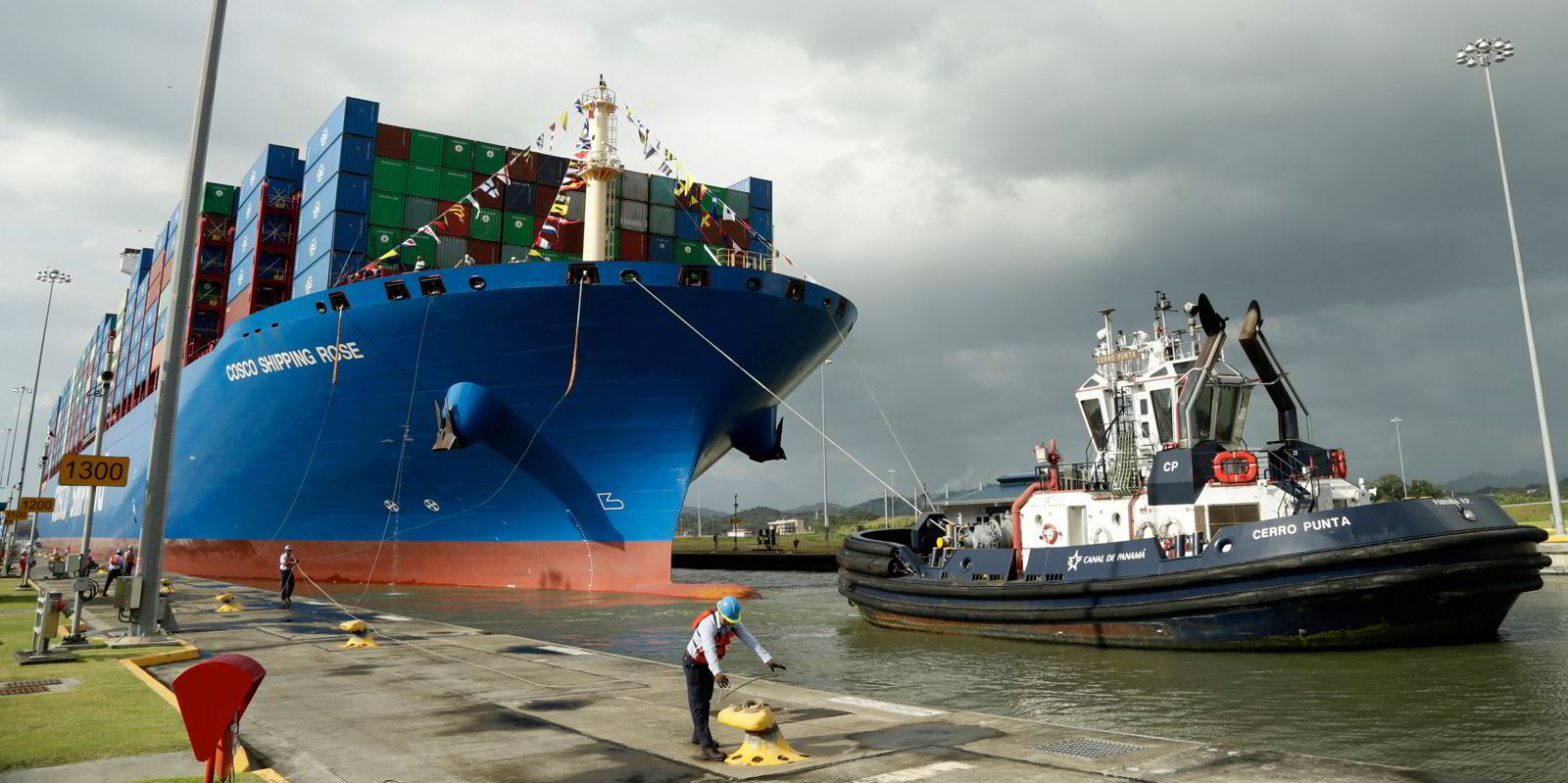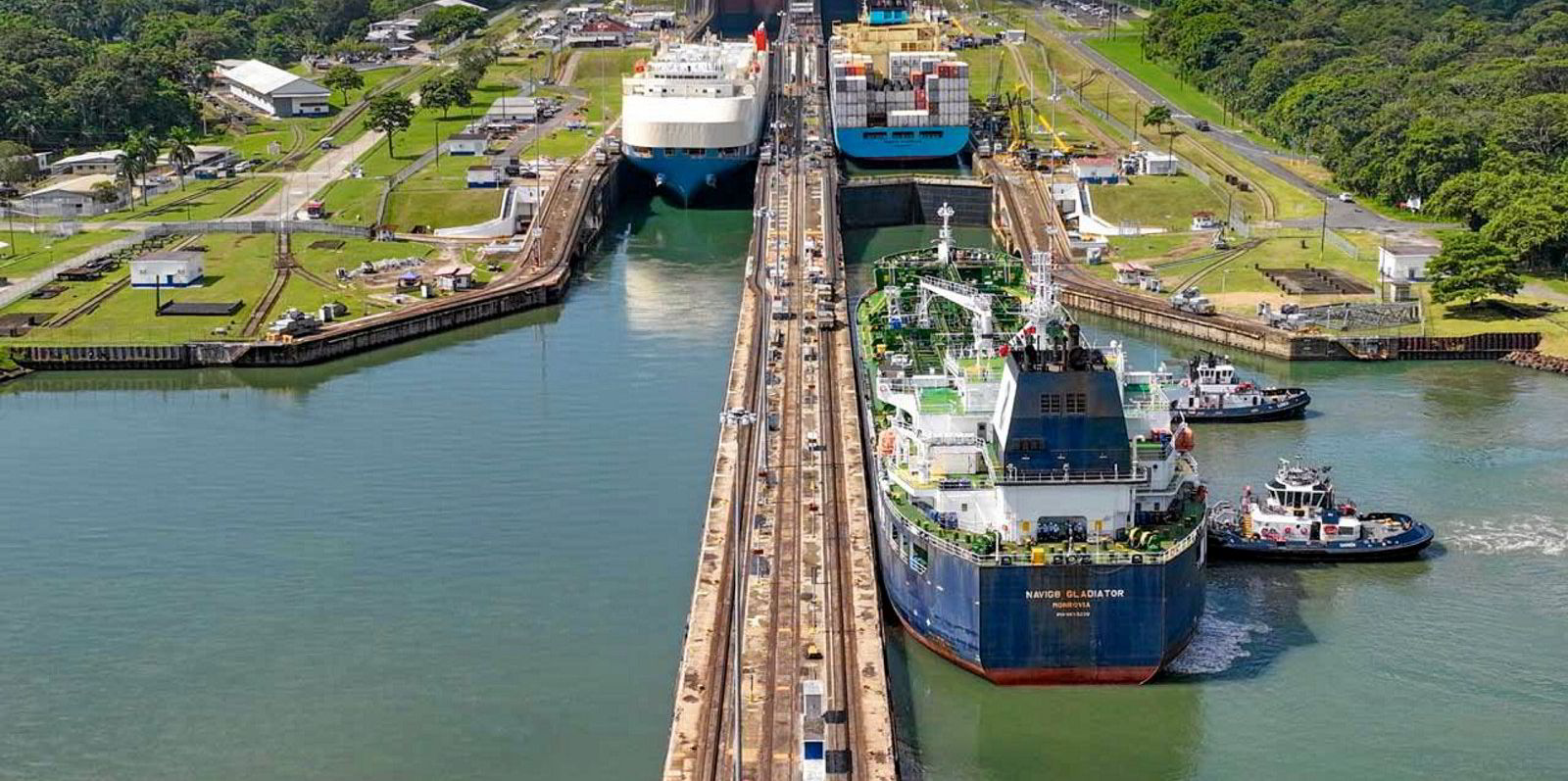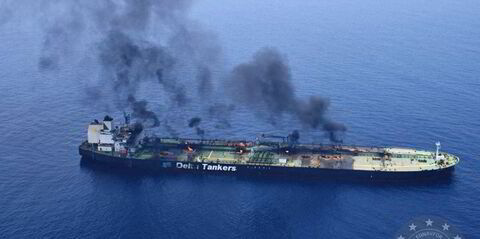A reservation to transit the Panama Canal has broken a new record amid a crisis that has led officials to turn away all ships without a pre-booked slot.
The situation comes as the Panama Canal Authority, which runs the century-old waterway, has taken increasingly drastic measures to confront a water level crisis that had already cut traffic flows.
A booking slot auctioned on Wednesday has fetched a record price of just under $4m, Flex LNG chief executive Oystein Kalleklev said on a conference call with analysts.
The executive, whose company owns a fleet of LNG carriers, said fees bring the total cost to around $4.5m.
“This means a lot of ships need to take longer routes from US, which is now the world’s biggest LNG exporter and by far the biggest LPG exporter, via Suez or Cape of Good Hope to the main end consumer markets in Asia,” he said on a subsequent LinkedIn post.
The executive, who is also chief executive of LPG carrier owner Avance Gas, said longer distances mean there are fewer ships available in the market.
“VLGCs are being priced out, driving VLGC rates close to all-time high again,” he said.
The ACP confirmed that the record was achieved at $3.9m for an LPG carrier that is scheduled for a northbound transit from the Pacific to the Atlantic on 15 November.
“Auction prices are determined by market dynamics, serving as an invaluable tool to offer options to our customers who may otherwise not have secured reservations,” the ACP said.
In October auctions, bids generally ranged from $100,000 to $800,000, with three surpassing $1m.
“Auction prices vary based on a multitude of factors,” the ACP said. “These factors include internal considerations such as waiting times and queue lengths, as well as external elements like charter rates and bunker prices.
“Additionally, the specific preferences and needs of individual customers, which may not be fully captured by the route value model, can also influence auction outcomes.”
The previous record, set only last week, was $2.85m — as TradeWinds reported.
The new high follows measures that included a one-week shutdown of the booking system and the mounting restrictions on how many ships can pass through the canal.
This week, shipping agency Leth Agencies stopped publishing waiting times after canal officials abruptly announced that they would no longer accept vessels in the waterway without previous bookings.
“As long as only booked vessels are allowed to transit, we will not be publishing the waiting time, since waiting time only accounts for non-booked vessels,” Leth Agencies said in a report to clients.
“In other words, a vessel arriving at Panama will wait as long time as it takes for the vessel to secure a booking.”

On Friday, the agency’s report showed waits lasting up to 10 days. Earlier this year, the queue had reached as long as 21 days, but many ships have already started avoiding the canal altogether rather than twiddle their thumbs off the Panamanian coast.
TradeWinds reported earlier on Wednesday that two LPG carriers turned around within miles of the canal over the weekend.
The Panama Canal has been beset by an annual rainy season that has been anything but. TradeWinds’ Green Seas newsletter has reported that last month had the lowest rainfall level for any October since records began, with two months to go before the annual dry season, as the effects of climate change impact the supply chain.
The dry spell has hammered water levels in Gatun Lake, a key source of water for the canal.
Panamanian authorities announced at the end of October that they would further ratchet down booking slots from the 32 vessels per day announced in June to 25 on 3 November, which fell to 25 on Sunday.
The number of booking slots is expected to fall to 18 on 1 February. In normal years, 36 ships travel through the canal each day.





